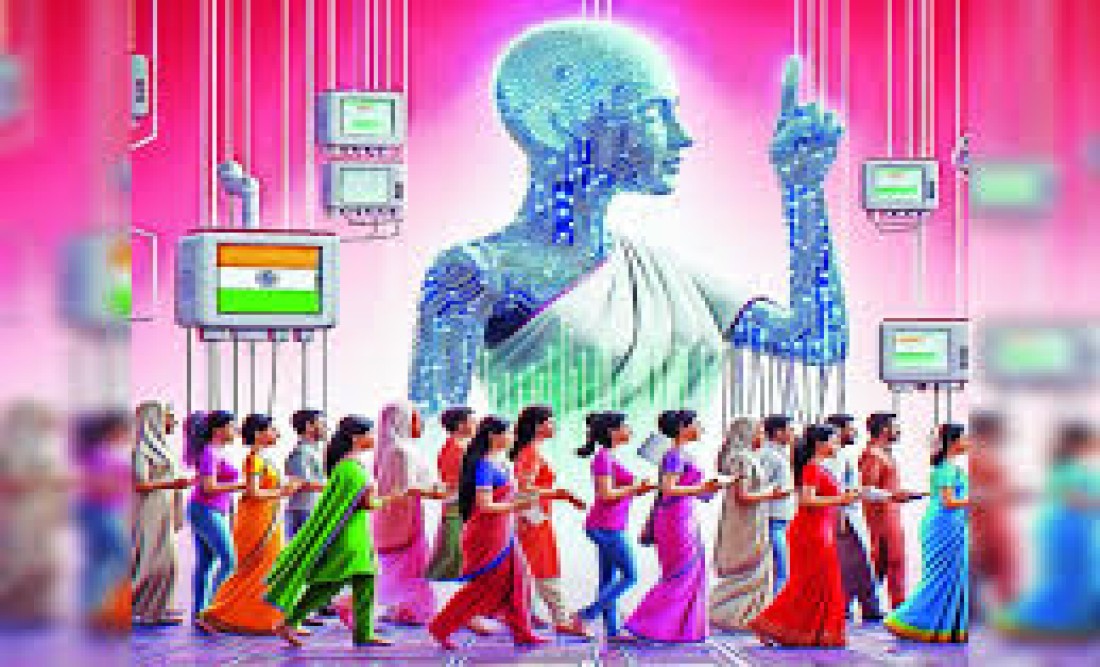The impact of AI on elections: benefits and dangers

New Delhi 24 April 2024 (VNI) As the election excitement sweeps through the nation, AI technology is set to have significant implications for the electoral process. A discussion panel convened at the Indian Women Press Corps, amidst the ongoing elections for the 18th Lok Sabha, aimed to comprehend the impact of AI technology on elections.
Although AI has been in use for some time, the rise of Generative AI has significantly impacted the election process, bringing both positive and negative outcomes. AI-generated images have been utilized worldwide in political campaigns, and now they are gaining prominence in India as well. One of the most significant impacts of Generative AI is its revolutionary effect on information processing.
The panelists comprised Archis Chowdhury, Senior Correspondent at Boom; Japleen Pasricha, Founder-CEO of Feminism in India; Kartik Sharma, AI Thought Leader; and Tejasi Panjiar, Associate Policy Counsel at the Internet Freedom Foundation.
According to Archis Chowdhury, Senior Correspondent at Boom, the influence of Generative AI is already apparent in the ongoing elections and could intensify as the polling dates approach. He voiced concerns that these tools could be exploited for disinformation campaigns by political parties, citing the rising trend of Deep Fakes as a potential source of misleading information without accountability.
Japleen Pasricha, Founder-CEO of the 'Feminism in India' website, emphasized the link between AI and online abuse, particularly towards women journalists. She stressed that all forms of AI technology are "double-edged" and have negative aspects, such as trolling. She also emphasized the necessity for effective mechanisms to curb hate speech and abuse, especially towards women. She urged social media companies to implement corrective measures for such issues even before these technologies are deployed, noting that gender biases often surface when a new technology is introduced, as the internet mirrors the broader societal context.
AI Thought Leader Kartik Sharma remarked that AI can be effectively utilized during elections to enhance the self-image of political parties and politicians. However, he cautioned about the issue of impersonation, stating that while AI is an excellent tool for creating a scalable version of a candidate during an election, tracking the source of Deep Fake content can be challenging due to ambiguous IT laws and unclear definitions of Generative AI, leading to accountability challenges.
Tejasi Panjiar, Associate Policy Counsel at the Internet Freedom Foundation, deliberated on the implications of AI on media legitimacy. She criticized the IT ministry's policy on the threat of Deep Fakes as deeply flawed, arguing that political parties must also be held accountable.
Archis Chowdhury proposed that during the model code of conduct period, the Election Commission could prohibit the use of Deep Fakes, as the technology is new and could potentially disrupt the election process.
Parul Sharma, President of IWPC, underscored the importance of understanding and knowledge of AI, stating that while the potential of machines to comprehend and respond to emotions is often contemplated, which can evoke both fascination and fear, an understanding of AI can be immensely beneficial during elections.Photo Courtsey-The Economic Times
No comments found. Be a first comment here!









